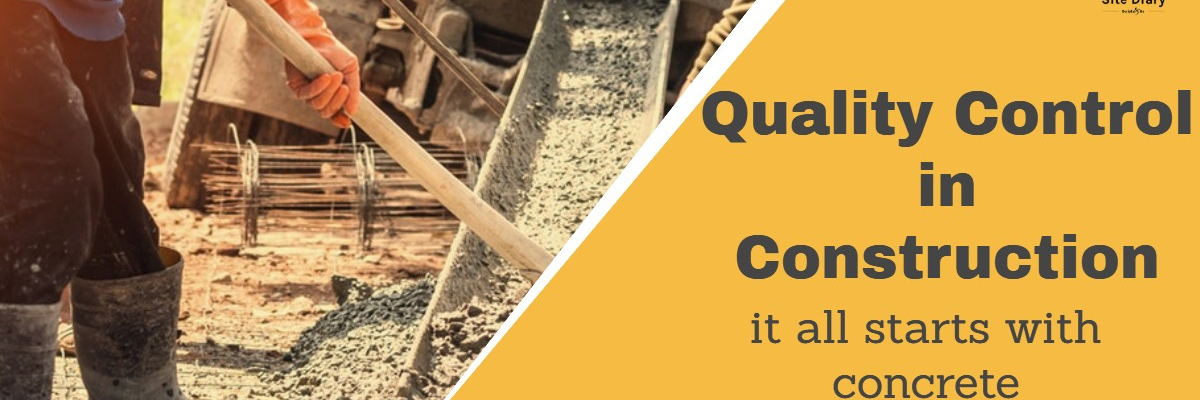Quality control in Construction – it all starts with concrete
- Education
When we talk about the construction industry, particularly about construction projects, there is a complex process that involves a variety of factors affecting the quality. These factors can range from design, materials to even meteorology. Although, and not limited to, there are technology factors that impact on the quality of construction as well as the chosen methods of operations, the technical measures, including how systems are being managed too.
Based on the principle of quality first, each construction company must stick to the idea of insisting on quality standards. These standards must be met, including the core of artificial control and prevention and to be able to provide high quality (Shah & Pitroda, 2015). This will ensure having a safe environment for the workforce which ultimately must consist of suitable and economic composite products. At the same time, while the cost of the construction supply chain can get decreased also, the status of construction firms benefits from being increased.

How does quality apply for concrete?
As previously mentioned, the quality of concrete is key within construction projects, especially because it is a core element of the building process. Concrete, known as the composite material made of cement, water and aggregate, plays an important role in this industry and its ingredients should satisfy the standards at all times for health and safety purposes of construction projects (Shah & Pitroda, 2015). Without it, buildings would crash and no development would be sustainable nor safe for public use.
From a different perspective, having quality amongst the concrete ingredients is not necessarily enough and the way these are produced matters too (Troxell, Davis & Kelly, 1965). By production, we refer to everything that involves batching, mixing, transporting or curing which take us to a scientific level. Having a good or a bad concrete made of the same ingredients is common, thus, the difference is made by the quality control of its production stage.
As a primary step, it is vital that concrete products are being handled with the right care and control during the ingredients selection, and every single side involved in this process, be them firms or individuals, must ensure that quality control is being given distinct importance.
The construction quality control system
Looking in more detail at the way the concrete quality control system works, it can be understood that the discrepancy of concretes makes it possible to minimise the consumption of cement, and ultimately allows the production of concrete to run more economically (Troxell, Davis & Kelly, 1965). Finally, quality control is indeed imperative for having both economy and quality aligned. Cement producing plant must include the date of production so that concrete producers know the age of the cement, otherwise, the slump may be miscarried within construction projects. In case that happens, an investigation has to be performed to establish the cause of the damages and there has to be concluded a specification of tests performed in this process regarding the concrete materials and any course of action part of that standard procedure (Shah & Pitroda, 2015). The highest approved concrete production is the one performed by specialist subcontractors in order to be able to vouch for top quality, especially in large towns worldwide.

Conclusion
The key elements to conclude this article is that both sides of consultants and contractors must be aligned with their professional ethics and standards and more than that, they should certainly be highly experienced to improve quality. To those semi-skilled consultants and contractors, intensive and specific training must be given on concreting work in order to avoid producing low-quality concrete. After all, the danger is high when the quality is low. Take weather conditions for instance and production of concrete during rain can result into buildings starting to crack after a few years – therefore, professionals involved in the production process have to bare in mind that every single aspect part of the production process is important for the sustainability and safety of its beneficiaries. One tool that can help in case of planning cement production depending on weather conditions is Site Diary, and although it is an app for construction sites purposes, it offers the weather feature which allows better visibility of live weather conditions.
References:
Shah. R., Pitroda. J., and Patel 2015 Quality control management in Building construction., p. 1-2, Available at: https://www.researchgate.net/publication/281271793
G. E. Troxell, H. Davis & J. W. Kelly 1965, Composition and Properties of Concretes. MC Graw Hill Book Company.
